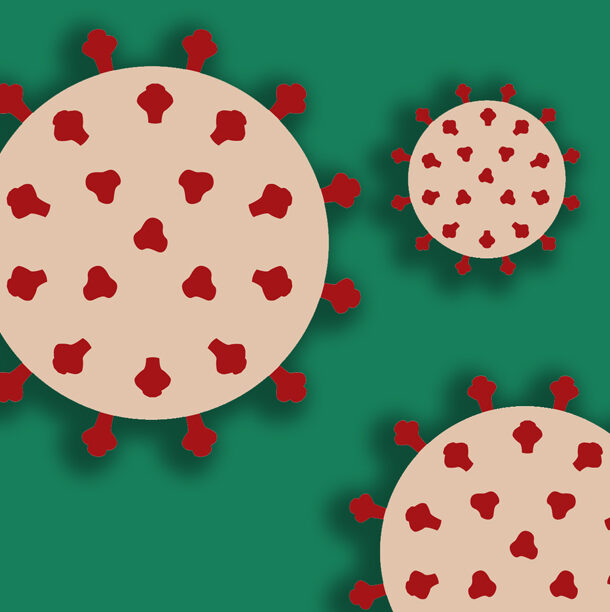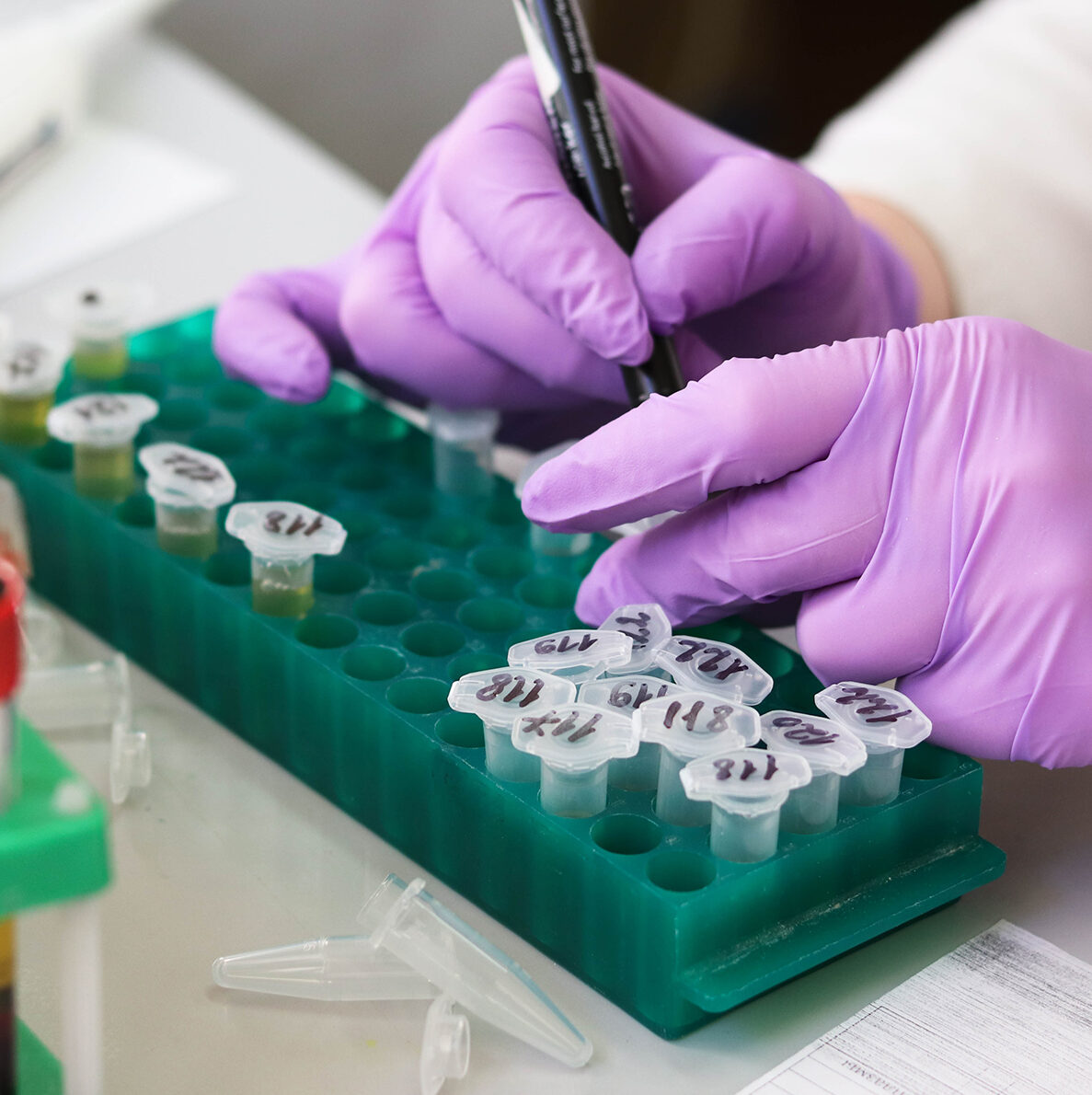National Leaders in Allergy and Immunology
Our goal is to provide the finest care for patients with allergic and immunologic diseases, train and develop future clinicians, and scientists and foster a quality research environment.
Our specialties
Need allergy relief?
Washington University immunologists are here to help you manage and find solutions to control your allergies and provide relief.

Clinical Trials
The Division of Allergy and Immunology at Washington University School of Medicine initiates and participates in a wide range of clinical research efforts to evaluate the safety and efficacy of promising new treatment options for various types of asthma, allergies and immunological diseases.
Latest News
Jeremy Katcher, MD, named MMC / Infusion Center Director at West County multispecialty center (Links to an external site)
It is our pleasure to announce Medical Directors who will serve our 4 outpatient Medical Multispecialty Centers with associated Infusion Centers. They will work within the framework of the Ambulatory Operations Executive Council (A-OEC) of the Department of Medicine (DOM) to serve as a physician liaison for the clinical operations at the MMCs. Alongside the […]
Jennifer Monroy, MD, talks with KSDK News Channel 5 about spring allergies (Links to an external site)
You may be cheering on the warm weather, but your sinuses are not. Rising temperatures mean trees are getting the cue to release pollen. “We tell our patients to come in and see us around February, for those that do notice earlier spring season,” Monroy said. “Around Feb. 14, so Valentine’s Day is probably a […]
Allergy team members receive Drum Major Award
Ilana Olin and Wumei Blanche, members of Dr. Peggy Kendall’s lab, were both honored as Drum Major Award recipients on Tuesday, January 16th, 2024 by the WashU Medicine Office of Diversity, Equity, and Inclusion. In a 1968 sermon in Atlanta titled “The Drum Major Instinct”, Dr. King stated “Yes, if you want to say I […]
Jerath & Zimmerman recognized as COVID Star Awardees (Links to an external site)
Maya Jerath, MD, PhD and Ofer Zimmerman, MD were both recognized by Department of Medicine on November 28, 2023 as COVID Star Awardees for their work and contributions during the COVID-19 Pandemic.
How to find us
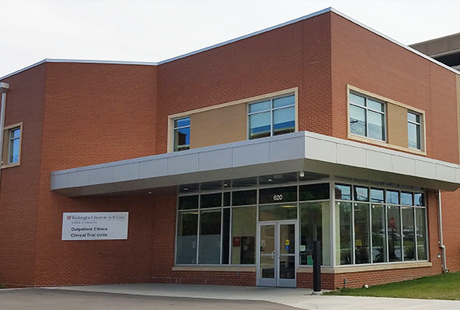
Taylor Avenue Building Extension
- Physical Address: 620 South Taylor Avenue, St. Louis, MO, USA
-
Mailing Address:
Taylor Avenue Building Extension
620 South Taylor Ave., Suite 100
St. Louis, MO 63110 - Phone: 314-996-8670
- Fax: 866-362-4984

The Asthma & Allergy Center Highlands Building
- Physical Address: 1110 Highlands Plaza Dr, St. Louis, MO 63110, USA
-
Mailing Address:
1110 Highlands Plaza Dr
Ste 300
St. Louis, MO 63110 - Phone: 314-996-8670
- Fax: 866-362-4984
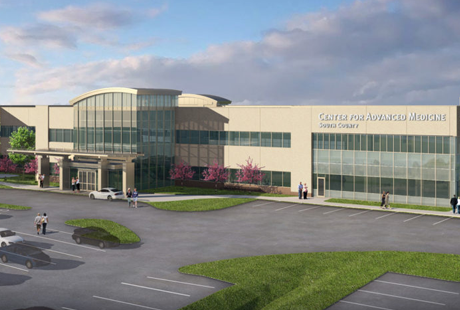
The Asthma & Allergy Center South County
- Physical Address: 5201 Midamerica Pl, St. Louis, MO 63129, USA
-
Mailing Address:
Center For Advanced Medicine –
South County, Suite 2300
St. Louis, MO 63129 - Phone: 314-996-8670
- Fax: 866-362-4984
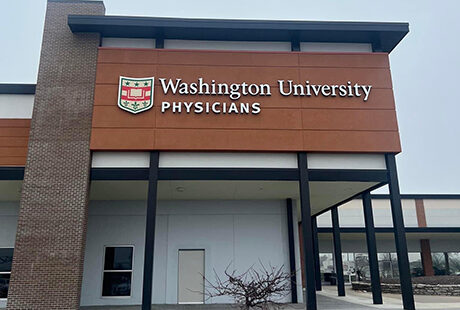
The Asthma & Allergy Center Village Square
- Physical Address: Village Square Shopping Center, Hazelwood, MO, USA
-
Mailing Address:
1 Village Square Shopping Center
Hazelwood, MO 63042 - Phone: 314-996-8670
- Fax: 866-362-4984
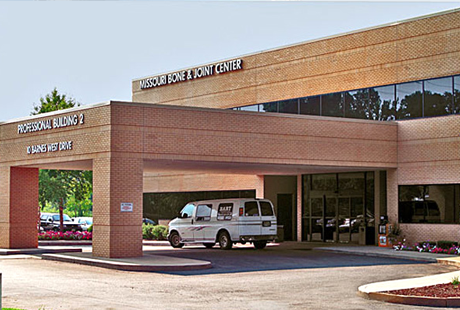
The Asthma & Allergy Center West County
- Physical Address: 10 Barnes W Dr, Creve Coeur, MO 63141, USA
-
Mailing Address:
Medicine Multi-Specialty Center
West County Medical Office Building 2, Suite 200
St. Louis, MO 63141 - Phone: 314-996-8670
- Fax: 866-362-4984






